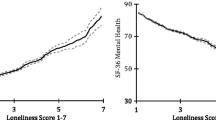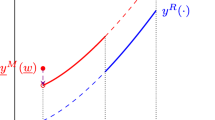Abstract
This paper critically analyses the position that basic income schemes foster idleness and thereby create harm. The view is based on an alleged empirical link between idleness and violent crime and an equation of non-activity with the creation of burden for others. It will be argued that the empirical claim is weak because it relies on conjectures derived from studies on unemployment. In addition, opponents arguing that basic income leads to an unfair distribution of burden between `lazy idlers' and `honest taxpayers' have to face three questions. Is the distribution of onerous or unpleasant work fair? Is the distribution of work burdens between paid and unpaid workers equitable? Is the distribution of work between the unemployed and the employed fair? None of these questions can be answered in the affirmative. Hence, it can be confirmed that the `idleness' argument against basic income relies on unfounded premises.
Similar content being viewed by others
Author information
Authors and Affiliations
Rights and permissions
About this article
Cite this article
Schroeder, D. Wickedness, Idleness and Basic Income. Res Publica 7, 1–12 (2001). https://doi.org/10.1023/A:1009634928648
Issue Date:
DOI: https://doi.org/10.1023/A:1009634928648




